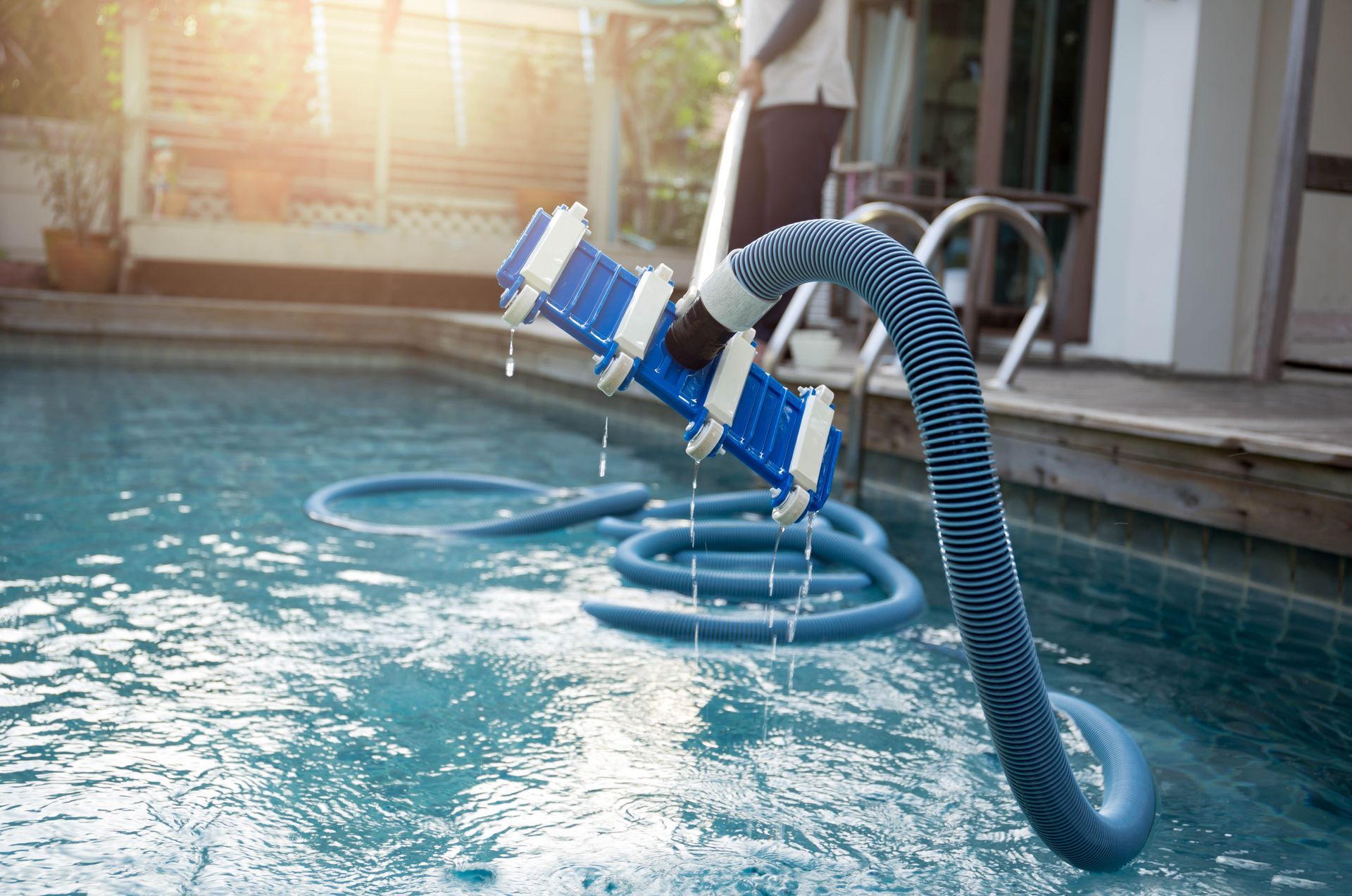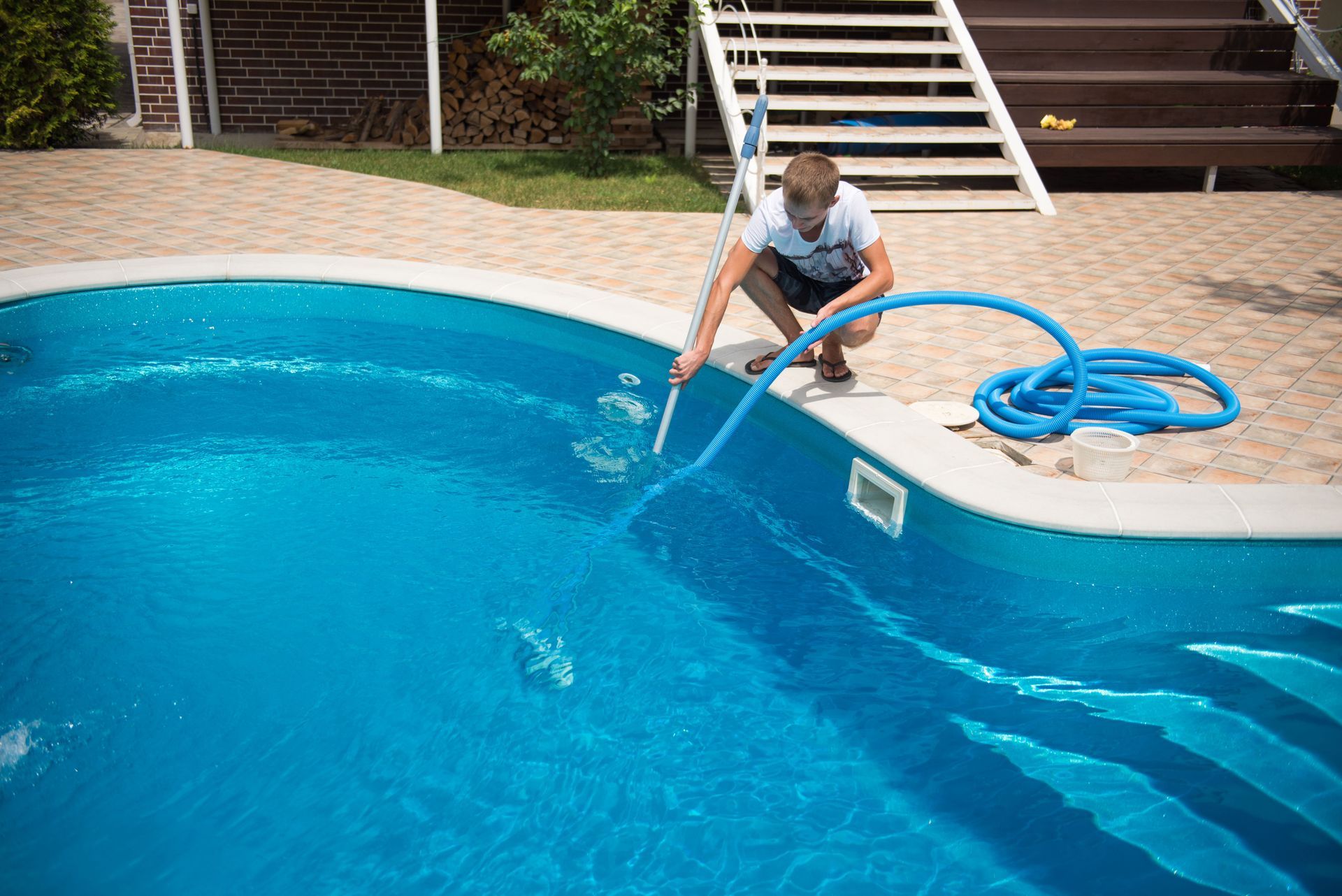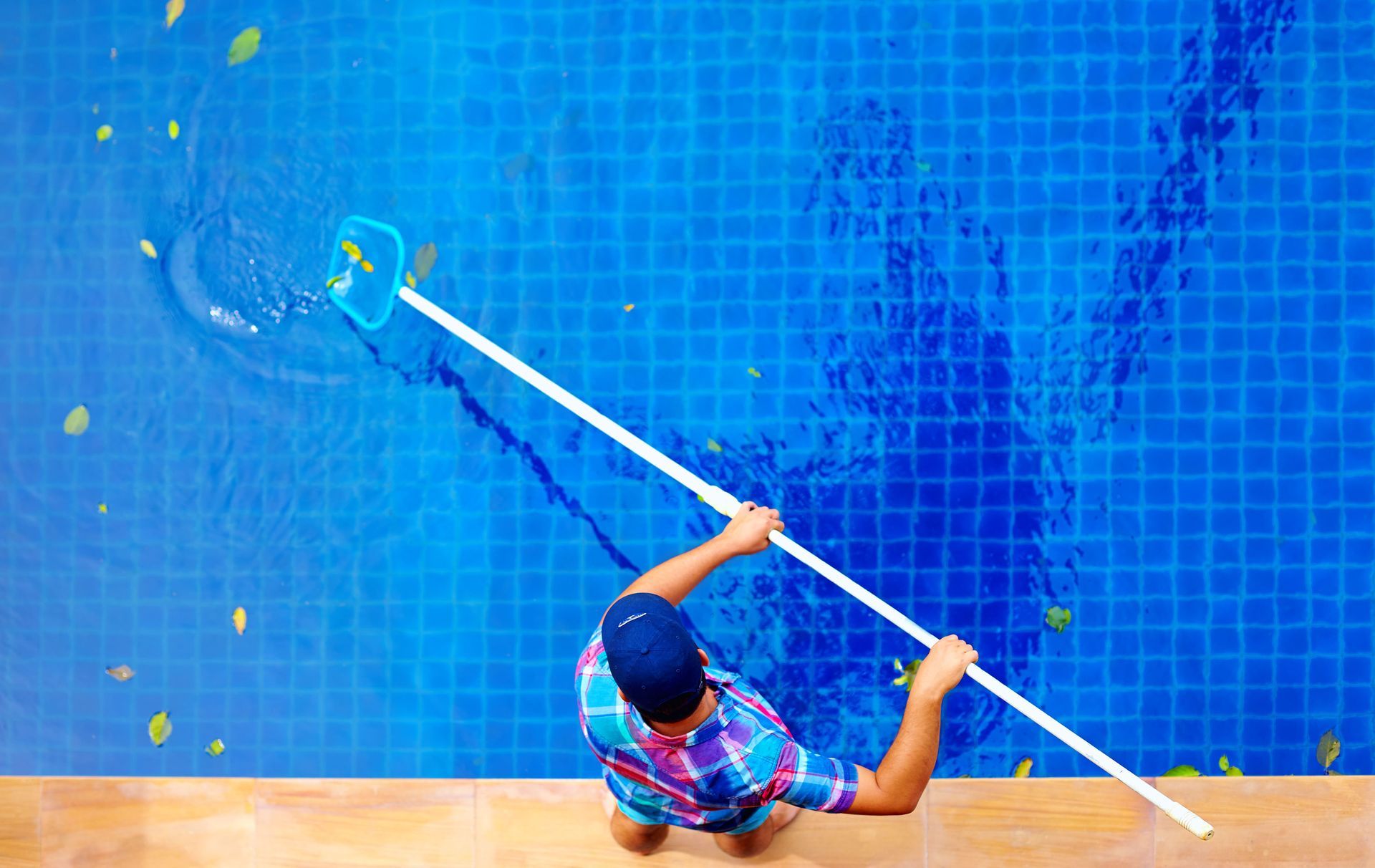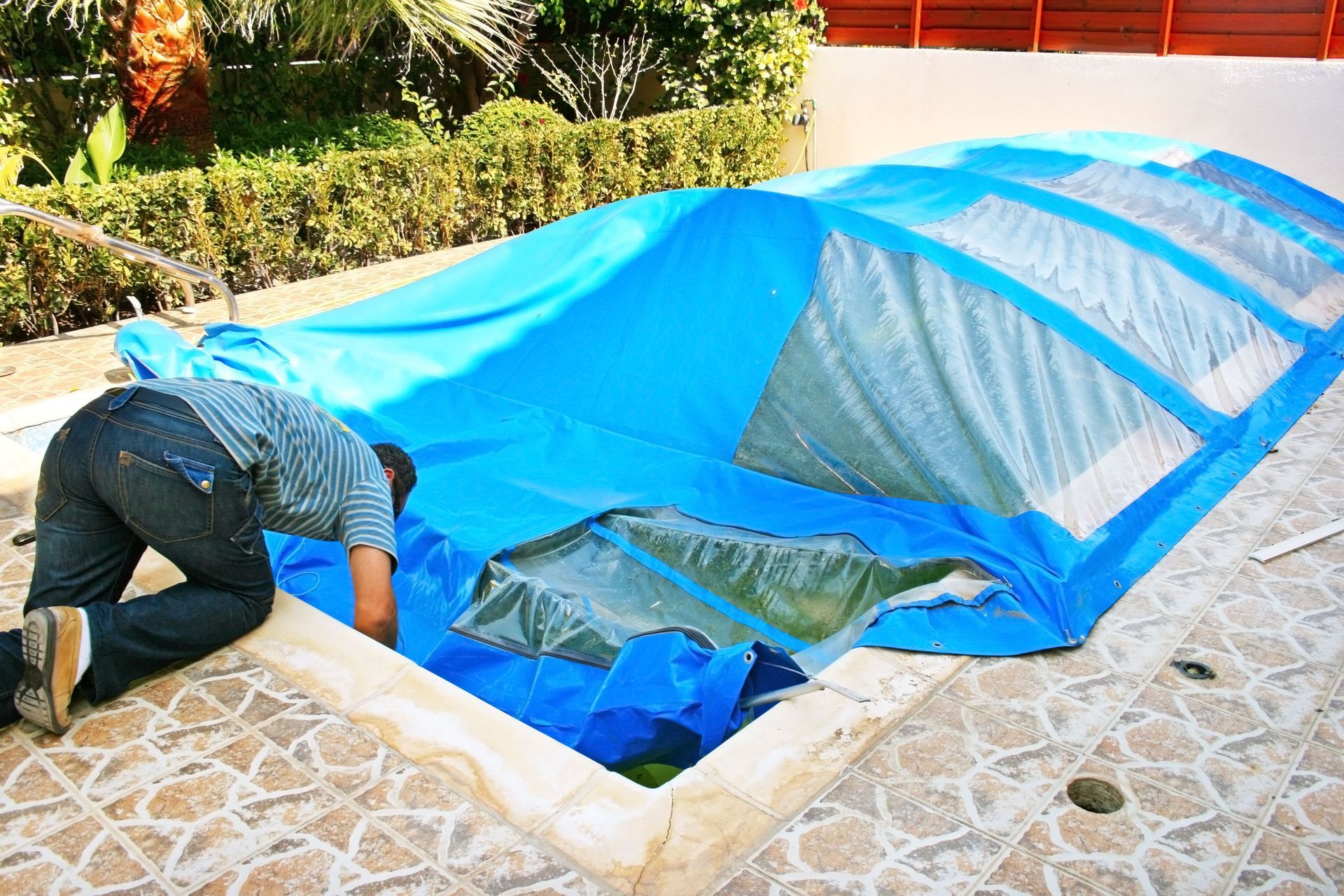How Often Should You Really Schedule Professional Pool Cleaning?
Maintaining a pool isn’t just about aesthetics—it’s about safety, longevity, and protecting your investment. One of the most common questions homeowners have is how often to schedule professional pool cleaning to keep everything in balance. While there’s no one-size-fits-all answer, several important factors influence the ideal maintenance schedule for your backyard pool.
Seasonality and Swimming Habits
The time of year plays a major role in how frequently you’ll need cleaning services. During the summer, when pools are used more often, debris, body oils, and sunscreen accumulate quickly, creating more work for your filtration system and increasing the likelihood of imbalanced chemicals. Higher usage also means more potential for bacteria and algae growth, which professional cleanings can help prevent. In contrast, off-season periods typically require fewer cleanings, especially if your pool is covered or winterized properly.
Swimming habits also matter. If your pool is primarily for weekend relaxation, you may not need cleaning as often as someone who hosts frequent gatherings or has kids using the pool daily. In these high-use cases, regular cleanings may be appropriate to maintain clear water and keep equipment running efficiently. Regular cleaning based on usage patterns ensures you're not waiting for problems to arise before taking action.
Pool Type and Surrounding Environment
Not all pools are created equal when it comes to maintenance needs. In-ground pools tend to accumulate more debris, especially those with larger surface areas and built-in features like waterfalls or tanning ledges. Above-ground models may be easier to cover and protect, but they can still be affected by environmental conditions and need regular upkeep.
The environment surrounding your pool can drastically increase the demand for pool cleaning. Pools near trees or flower beds are prone to falling leaves, pollen, and dirt being tracked into the water. If you live in an area with ongoing construction, expect dust and debris to collect on the surface and clog your filter. Pools in open spaces may get less organic matter but are more exposed to windblown dust and contaminants.
Weather and Regional Climate Conditions
Weather patterns and climate zones influence how often your pool should be professionally cleaned. If you live in a hot, humid region, warm temperatures can accelerate algae growth and promote chemical imbalance. Windy or stormy climates may introduce more debris, while rainfall can dilute chemicals and lower the water's pH, requiring rebalancing and often prompting a professional cleaning to restore proper levels.
Pools located in cooler or drier climates may stay cleaner for longer stretches, but can still develop buildup over time. Even in the absence of heavy pool use, stagnant water and neglected filtration can lead to cloudy water or unexpected maintenance issues. Keeping tabs on your local climate will help you anticipate when professional cleaning is needed, even if everything looks fine on the surface.
Equipment Maintenance and Filter Load
Your pool’s filtration system is the backbone of water clarity and sanitation. When debris builds up or filters become clogged, even the best chemical balance can’t compensate. That’s why keeping your system in good condition is just as important as keeping the water clean. Professional cleaners don’t just skim leaves—they inspect and maintain the filter, pump, and skimmer baskets to help everything run smoothly.
A clogged or overworked filtration system not only compromises water quality but also shortens the lifespan of your equipment. Regular pool cleaning allows technicians to spot small issues before they lead to larger, more expensive problems. If your equipment frequently appears dirty or underperforms, you may need to schedule cleanings more often than the average homeowner.
Signs It’s Time to Call a Professional
Sometimes, the signs your pool needs professional attention are obvious—other times, not so much. Cloudy water, visible algae, or a strong chemical smell are clear indicators that your pool’s chemistry is off. Similarly, slippery surfaces, an unusual color tint, or increasing debris despite regular skimming point to deeper issues.
Even if you’re handling routine tasks on your own, there are limits to what non-specialized tools and test strips can reveal. Professional pool cleaning services use commercial-grade equipment and expertise to diagnose water quality issues and prevent health risks. If you notice your pool requiring more frequent manual adjustments or treatments, that’s a good sign that it’s time to bring in help.
Cost Considerations
The cost of cleaning varies widely depending on your location, pool size, and service frequency. Routine visits may be priced affordably, while first-time cleanings or green pool restorations tend to be more expensive. According to HomeGuide, it typically takes professionals around 2 to 3 hours to complete an initial deep cleaning, especially if the pool hasn’t been maintained in a while.
Other factors that may affect pricing include the level of debris present, the accessibility of your pool, and whether specialized equipment or water treatments are required. Pools that have been neglected for a long time may need additional labor or multiple visits to restore proper balance and clarity. While occasional cleanings may seem more economical in the short term, maintaining a consistent schedule often helps prevent costly repairs related to equipment failure or poor water quality. Comparing estimates and asking for itemized pricing can help you better understand what you're paying for and why.
Consequences of Infrequent Cleanings
When routine cleanings get skipped or postponed, small issues can quickly escalate into costly repairs. Algae blooms, for example, often begin as just a light green tint or slippery surface, but within days, they can take over the entire pool, staining the walls and requiring chemical shock treatments or drain-and-clean services. Similarly, when filters aren’t cleaned regularly, they become clogged with debris, putting excess strain on the pump and reducing water circulation. This not only affects the clarity and sanitation of the water but can shorten the lifespan of expensive equipment.
We’ve seen cases where inconsistent pool cleaning led to warped liners, broken pumps, and even damaged pool heaters—repairs that could have been avoided with regular maintenance. Beyond the equipment itself, dirty or unbalanced water poses a health risk, especially for children or anyone with sensitive skin. Irritation, ear infections, or even recreational water illnesses can arise from improperly maintained water. That’s why consistent cleanings aren’t just a cosmetic issue—they’re a vital part of keeping your pool safe and enjoyable for everyone who uses it.
Benefits of Staying on Schedule
Sticking to a cleaning schedule is about more than sparkling water—it’s about protecting your investment. Routine cleaning prevents the buildup of organic material, helps maintain the correct chemical levels, and reduces wear on equipment. Over time, this translates to fewer repairs, a longer lifespan for pumps and filters, and a better swimming experience overall.
Beyond convenience, regular professional pool cleaning can help you stay ahead of seasonal changes and surprise issues. When cleanings happen on a predictable schedule, you’re less likely to experience green water, shut down your pool for repairs, or spend extra money on emergency services. Staying proactive is one of the smartest things pool owners can do.
The ideal professional pool cleaning schedule depends on your climate, pool type, and how often the pool is used. There’s no universal rule, but staying consistent with cleanings, especially during high-use months, can make a big difference in water quality and equipment performance. A little planning now can save a lot of time and trouble later.
Want a crystal-clear pool without the stress? Let Desert Bloom Pool Care handle your professional pool cleaning schedule with reliable service you can count on. Contact us today to book your next visit and keep your pool swim-ready year-round.





Share On: